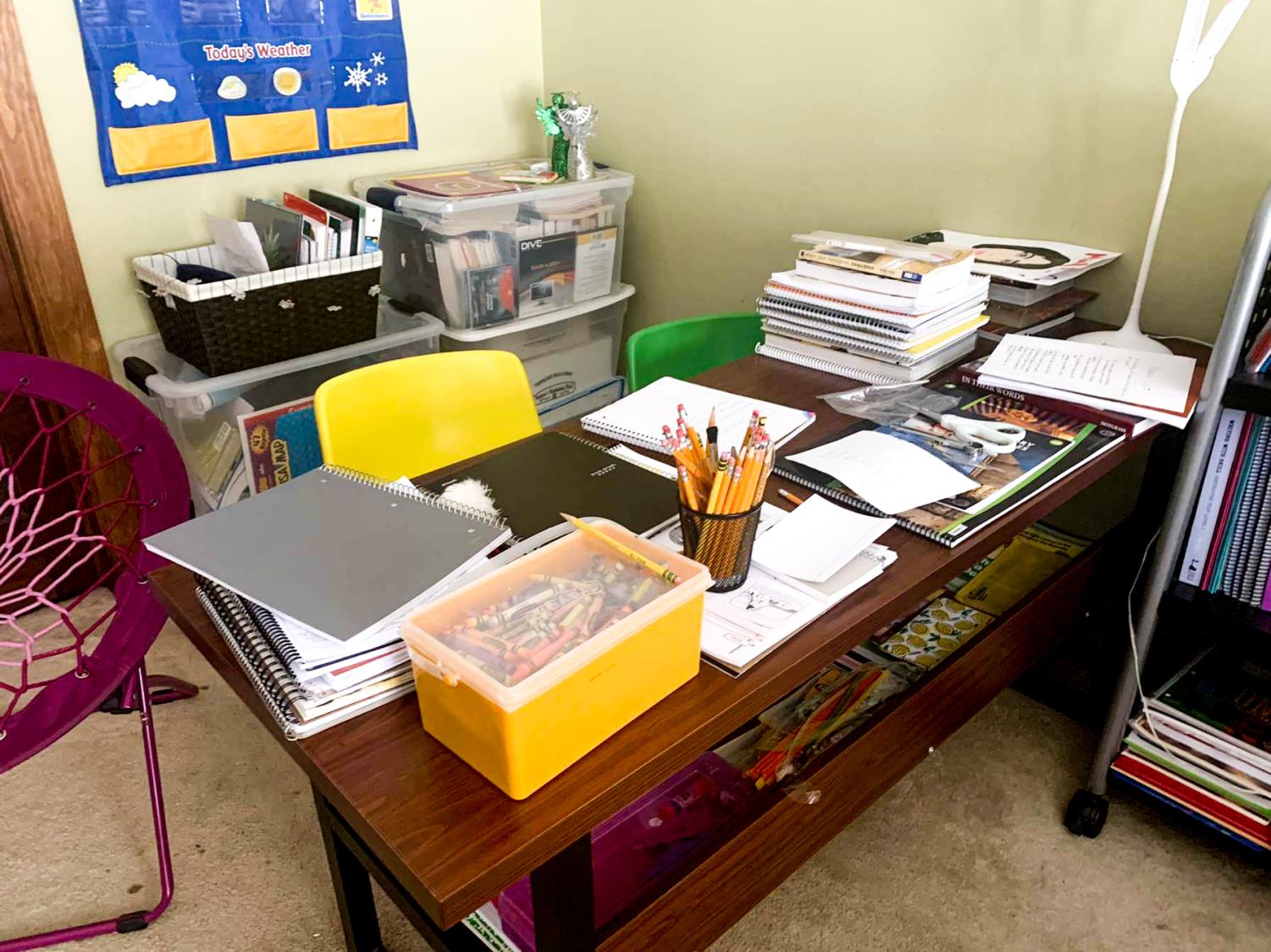A look into home-based education
February 9, 2022
After a year of unprecedented circumstances, students across the country got a taste of a reality foreign to them: doing school from home. For others however, this experience was not one out of the ordinary.
Home schooling, the parent-led home-based education, is an age-old practice that is now bordering a mainstream practice. In 2020-2021 there were approximately 3.7 million home-schooled students in the United States.
In Illinois, the school law code allows students to receive their education from home under the following terms: instruction is given in the English language, parents or legal guardians are responsible for providing a child with an organized educational program and using appropriate materials and teaching methods in order to satisfy statutory requirements. (105 ILCS 5/26-1)
The motivating factor behind taking this educational route, however, can vastly vary from family to family.
DGS social studies teacher Bryan Szweda spoke about his kids’ home-school experience and the reasoning behind that decision.
“My wife and I had vastly different educational experiences. I was in public school my whole life and had a really good experience with it and [am] now working as a public school teacher. She came up parochial school, public school, she spent a year homeschooling after she had cancer, so like she had tasted all three of them– that being the basis for the compromise of what we ended up doing,” Szweda said.
Because this method of education is rather foreign to those who go through the traditional path, many are left oblivious to the actual logistics of homeschooling like curriculum programs.
“There’s a couple of programs that we use that kind of sets the curriculum. There’s other things like a school history curriculum that I don’t necessarily need an outside program, right. So it really depends on what the kid is and what classes are taken,” Szweda said.
Not only are the programs similar to the traditional education received, the schedules are not vastly different either.
Home-schooled her whole life, 17-year-old Isabella Bacerott shared her daily school schedule.
“I wake up at eight and start my school work at 8:30: I always start with my math and science lectures which both contain quizzes and practice sets after each lesson. Then I move on to my English workbook, which is a page a day, then my history and literature lessons. Afterwards, I do my electives like Portuguese, creative writing and art,” Bacerott said.
Because most children receive the chance to socialize through school, being home-schooled requires outside sources for that opportunity. Szweda does not fear that his children lack the social aspect of school and spoke about what his kids do to interact with others.
“They’re athletes– so travel baseball, soccer, softball. My oldest daughter dabbled in some swimming, did a little dancing. They’re very involved in external things. We have a neighborhood where there’s tons and tons of kids… so they’ve got a ton of friends.. they have a very large family support network as well: cousins basically all their ages. So plenty of opportunities for them to socialize,” Szweda said.
Bacerott also shared how she can engage with others specifically through a home-school group she belongs to.
“To socialize we joined a home-school group, and did plenty of sports and arts classes as well. For our home-school group, we met once a week for electives and then we’d go on field trips together as well, but recently because of COVID, we’ve just been doing the electives on Zoom with the group,” Bacerott said.
Senior Eshah Khalid grew up through the traditional educational pathway and shared why she is thankful for her opportunity to attend a public school.
“Even though this is the most basic comparison to being homeschooled and not being homeschooled, I feel it really does change someone’s perspective on learning and their social life. By being able to speak to more people on a daily basis, face to face, I built relationships with peers and teachers, which helped further a healthy learning environment for myself. Homeschooling allows for less distraction in my opinion; however, the ability to ask a friend for help is more convenient when you’ve met them in person and take a class in the same room,” Khalid said.
While there are pros and cons, they all differ from person to person. Doing school from home requires discipline but also allows students to specifically cater to their individual needs, an action that is harder to carry out elsewhere.
